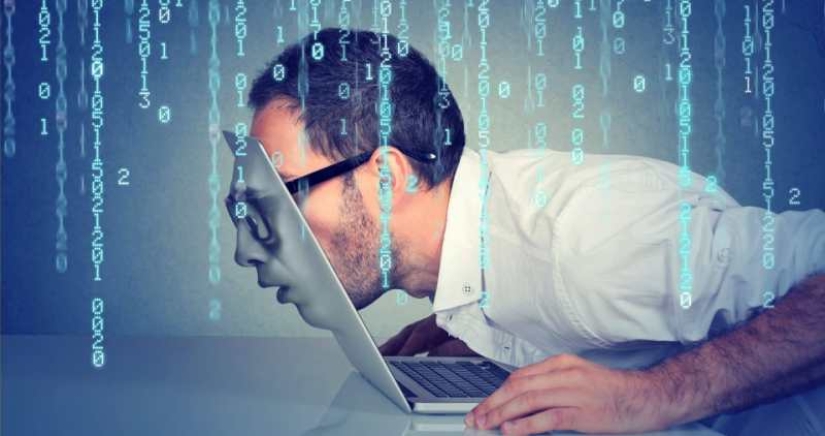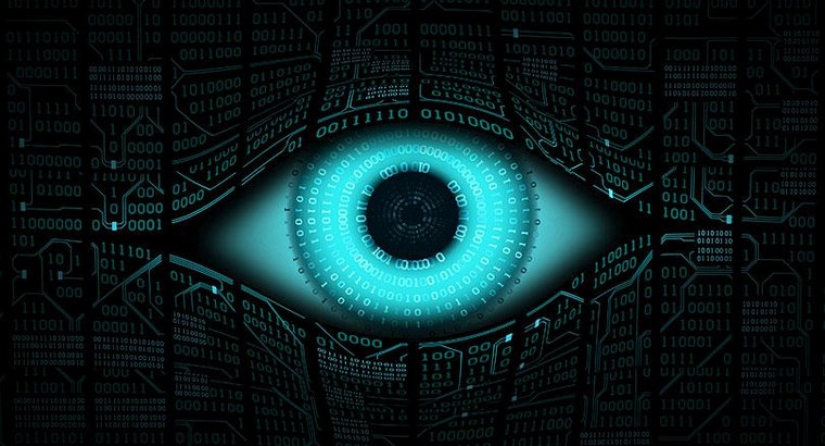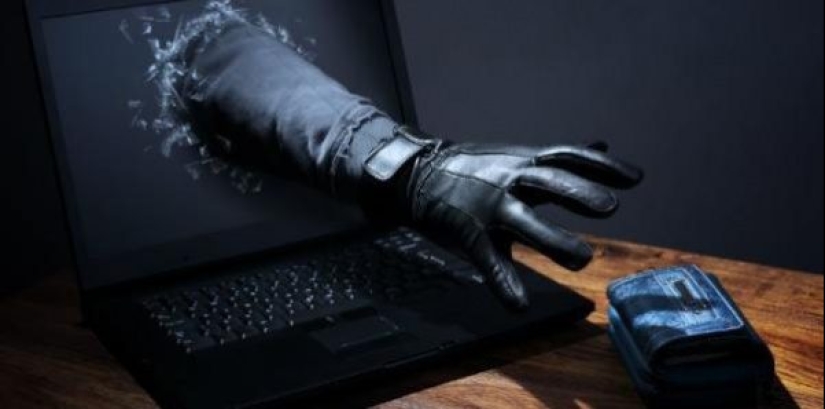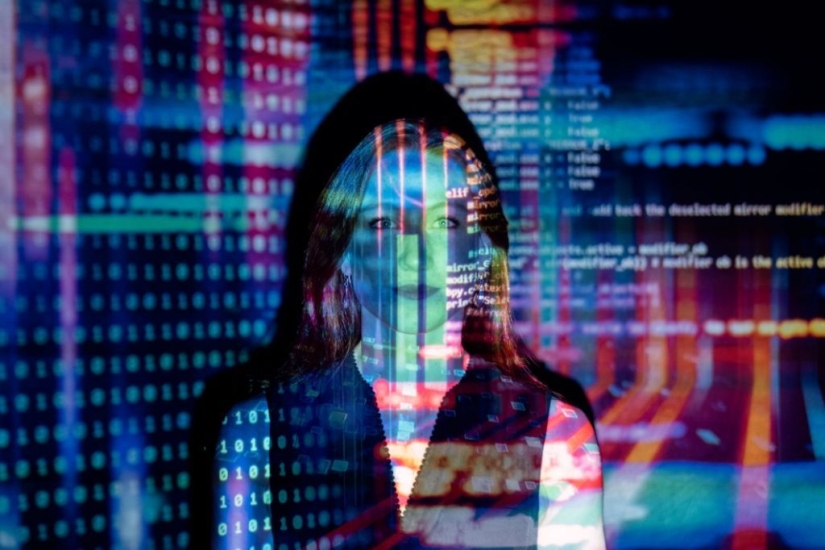What is a digital identity and how to protect it from encroachments
Categories: Science | Social Networks | Society | Technology
PictolicThe Internet has firmly entered our life and every year takes up more and more space in it. Digital technologies make it easier to perform many tasks and simply make life more comfortable and enjoyable. But there is also a downside to the coin. Information on the web spreads uncontrollably and what you would not like to put on public display sooner or later becomes public domain. Unfortunately, many have lost control of their personal data. Let's see if it's possible to fix the situation and why the philosophy "I have nothing to hide and I'm not interested in anyone" works against you.

If you use the Internet, a large amount of all kinds of information has been collected about you. Some of it is stored in closed databases, and some of it is open for public access. You may not be aware of this data, but others are constantly using it. These can be companies, services, applications, and even individuals. Most of these processes are not visible to you, but believe me, not all of them are completely harmless.

It is known that victims of cybercriminals, most often, do not suspect that some kind of work is being carried out against them. At this time, scammers quietly extract information until it becomes enough to steal money. But the knowledge about the "traces" that we leave on the network is needed not only to protect against intruders. There are many types of network activities, to put it mildly, not approved by the state. In order not to get into trouble with the law, it is better to be able to "clean up" your tracks.
To begin to understand the issue, it is worth studying the basic terminology. Many words and expressions seem familiar, but most often we interpret them incorrectly:
There is also a legislative difference between these concepts. Personal data may be protected by the right to privacy of correspondence. They also try to protect personal data, but it doesn't work out very well. They have long become a valuable resource, which is hunted not only by scammers, but also by quite reputable companies.

When we visit websites, we increasingly come across ads about saving cookies. We see them because the public puts pressure on politicians and they pass laws on data protection. According to the norms in force in the West, the site must ask the guest what information he is ready to provide to the resource. It should also notify what data can be collected at all.
Cookies contain the user ID and a number of other parameters. It is thanks to them that we do not bother to re-enter logins and passwords in social networks and forums every time. The information in these files can be collected very different. It all depends on the needs of the service. It is important to remember that the site can use not only its own "cookies", but also those collected by other resources.

Profiles store data about screen resolution, device model, language preferences, region, browser and operating system version, fonts used. These, at first glance, harmless information helps to accurately identify the user on the network.
Yes, the site is visited by thousands of people and some of them will partially match the data, but this will happen to very few. But there are also other attributes about which less is known. Taken together, all this makes it possible to almost accurately identify a person. These sets of information have recently been called "digital fingerprints", since they are no less unique than fingerprints.
In 2014, in one of the publications of the online magazine The Wired, personal data was called "new oil". The article concerned the future of the digital economy. Its essence is based on the fact that if we can measure something, it means that it can be changed, improved. But data is needed for measurement. Therefore, companies that have learned to collect information and analyze it as efficiently as possible gain huge advantages over competitors.

But there is an important caveat — large amounts of data have value on a global scale. Therefore, sites are not particularly worried about the safety of data of a single user. The task of any company working in this field is to collect as much information as possible and analyze it. Then she will be able to improve her product as much as possible and will become simply irreplaceable on the market.
But "black gold" and "new oil" have serious differences. If you have real oil, you can sell it. His own digital personality is of little use, it can only benefit others. Therefore, it is important to at least partially regain control over it so that no one profits from your data.
If you have not yet encountered cybercrime, this does not mean that it does not exist. According to statistics, every sixth Russian has become a victim of telephone scams. The personal data of every second citizen of the Russian Federation is in someone's hands, not always decent.

There has long been a market for so-called "breakouts", when an interested person can order the collection of information about any person. And it is impossible to calculate how many people become victims of "cyberstalking" every day, that is, harassment or blackmail online. By the way, some of these unpleasant acts are not punishable by law at all, since they are not considered crimes.
If you want to completely disappear as a digital personality, you will have to spend a lot of time and effort. It will be necessary to work, including with state resources. It is unlikely that you will be able to do this amount of work yourself, so it is better to contact a specialist in the field of digital security. Although, if you have time, you can improve your education by studying specialized resources.
Therefore, it can be recommended to partially delete data from the main resources that are guilty of data leakage. You need to start by compiling your own profile. This is a table with all the social media accounts and forum credentials that you can only remember. If you do not hope for memory, then you can put your name, phone and email in the Yandex or Google search. You will immediately see on which sites you have lit up.

After such an inventory, you can proceed to the main task. You need to delete the accounts that the sites allow you to deactivate and clog the rest with information garbage. If you do not plan to completely leave social networks, leave the accounts you need the most. But they should contain a minimum of information, for example, a name, a nickname, a non-speaking avatar. The same thing will have to be repeated with the messengers that will be used.
Do not forget to audit all online stores and trading platforms where you have been registered. Don't miss out on forums, blogs, dating sites and review aggregators as well. You decide which information to delete and which to leave. But remember, the more real information you leave, the less useful your work is. Yes, do not forget that you do all this at your own risk. If something stops working after such a cleaning, then there will be no one to blame. Remember that some sites are linked to each other, so surprises may be waiting for you.
Recent articles

It's high time to admit that this whole hipster idea has gone too far. The concept has become so popular that even restaurants have ...

There is a perception that people only use 10% of their brain potential. But the heroes of our review, apparently, found a way to ...

New Year's is a time to surprise and delight loved ones not only with gifts but also with a unique presentation of the holiday ...